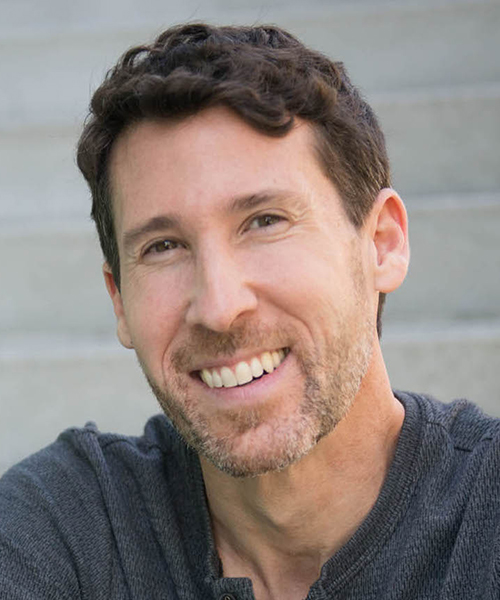Using AI to Shape the Future of Treatment Personalization
April 18, 2024
Throughout his career, Dan Riskin, M.D., M.B.A., has used his problem-solving skills to tackle health care challenges by patenting medical devices and health informatics software. He is now CEO of Verantos, a company in California’s Silicon Valley. Verantos specializes in gathering highly accurate real-world evidence (RWE) for scientific research. Riskin is using his expertise to address a major gap in health care decision-making: how to find which treatment will work best for each patient. His company is developing a platform to gather RWE from new and more detailed sources.
In 2018, Verantos was awarded an SBIR Phase II grant for nearly $1.5 million from NCATS at the NIH. The grant let the company hire key experts to do foundational research and development for its product.
“We sought funding from NCATS because we understood that they only fund projects that move the state of the art forward and having that early validation of our idea was immensely important,” Riskin shares. “NCATS funding not only provides needed capital to innovate; it also provides a reputational boost that a young health care startup needs. In our case, we needed to work with pharmaceutical firms and health systems, but these firms were reluctant to work with us when we were a small company. Knowing that our technology had been through NIH peer review and had received grant funding in its early stages lent needed credibility as the technology was developed and matured.”
The number of approved treatments for many health conditions and diseases is growing. However, the lack of research comparing how well different treatments work makes choosing and customizing treatments difficult. This is especially hard to tailor to different patient groups. Traditional randomized controlled clinical trials can offer safety and effectiveness data. But, they are often not conducted on a large enough scale to show differences among treatments or patient subgroups.
“In some ways, care has reverted from medicine as a science to medicine as an art,” says Riskin. “With an increasing number of treatments approved and minimal information on subgroups and comparative effectiveness, doctors must guess which treatment out of many approved options will work best in a given patient.”
The medical field has struggled to collect and understand patient data that have so many elements. Riskin notes that other industries use detailed consumer data to better target their advertising. This type of collected data lets companies create profiles to predict customer interests, motivations and behaviors.
“We need to learn from health data and allow patients to benefit from it the way consumers benefit from data collected by companies like Google Maps and Spotify. Applying artificial intelligence (AI) to robust data to create a learning health system is the future of health care,” Riskin explains.
Yet such easy-to-access and easy-to-use data sets do not exist in health care. Data with this level of detail must be gathered from patient records and reports, a time-consuming and costly effort. Researchers and health systems experts often use claims data from insurance companies instead. However, this type of information is not as complete and offers little context for treatments and results.
Riskin thought he could solve this problem. A surgeon turned entrepreneur, he has been writing and selling software since grade school. He co-founded his first medical technology company while still a surgical fellow at Stanford University. While serving on the Obama Campaign Health Advisory Committee, he started and led a company that used AI to measure clinical results and risk in health systems. In 2014, Riskin testified at hearings for the 21st Century Cures Act. The Act provided $6.3 billion in funding to speed up medical product development, mainly through the NIH. The Act also required the U.S. Food and Drug Administration (FDA) to create a pathway and guidance for using RWE. The discussions he had with fellow experts at these hearings inspired him to use AI technology to personalize medicine. The result was Verantos, founded in 2015 in Menlo Park, California.
“As we saw a huge increase in data (like electronic health records), advancements in technology (such as AI), and more powerful computing (thanks to the cloud), it became clear that we were entering a time when a ‘learning health system’ could happen,” says Riskin. “It felt like a critical moment: we could either repeat past mistakes by misinterpreting limited data, or we could set a new, better standard for evidence in RWE. So, I founded Verantos to showcase the best-quality data and most reliable evidence possible using these new capabilities."
Verantos created a tool that uses AI and advanced data technology to study electronic health records on a large scale to gather highly accurate RWE. The tool combines the data in the records with results data and patient traits. This process, called “deep phenotyping,” helps the company build medical profiles. These profiles help to predict how diseases will advance in different types of patients and how patients will respond to different treatments. Linking the profiles to relevant pharmacy and medical claims databases made them the most complete models available.
Academic medical centers have experience testing the accuracy of advanced technologies and improving their use, but that experience usually is too small scale for other researchers to rely on. Meanwhile, the pharmaceutical industry can use technologies on a large scale, but it looks at claims data as evidence, which provides limited clinical information. Verantos aims to bridge the gap among academia, government and industry.
As a result of the NCATS SBIR Phase II funding, Verantos is overseeing a 3-year FDA demonstration project called TRUST. The TRUST project compares traditional decision-making methods using claims data with its own deep phenotyping approach. The approach is then applied to one patient population in a real-world clinical study. The company hopes to find better approaches to data quality to improve regulatory, payer and provider decisions about treatments.



